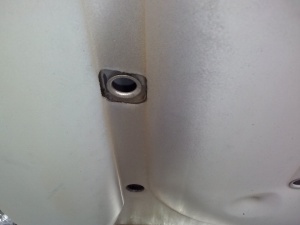Carbon Monoxide
Carbon monoxide (CO) is an odorless, colorless gas produced by the burning of something. In this case fossil fuels such as propane or natural gas. All furnaces that use these fuel sources produce carbon monoxide at some level. Carbon monoxide is created by burning organic materials and is made worse when not enough oxygen is used when burning these fuels. CO becomes dangerous to humans at levels from 35 to 50 parts per million (ppm). The higher the ppm and the longer the exposure the more harmful it is. Carbon monoxide is harmful to humans because it stops the absorption of oxygen to the body. Symptoms of CO poisoning include nausea, dizziness, headaches and feeling weak or tired. The smaller the person the greater the effects are usually felt.
CO and your Furnace
For this blog we will stick with the causes for the presence of CO related to your furnace or water heater. In both of these natural gas or propane is burned in a metal chamber and then exhausted out a flue. If this chamber (heat exchanger) is cracked or split in anyway then the burned gases now have access to the air stream. If the flue for these appliances is cracked, separated, or clogged this can also cause CO to enter your home. In addition if the flue exits your home near an open window or door then carbon monoxide can be pulled into your home.
Prevention
For the best prevention of these EVERY home with a gas appliance should have several CO detectors. At least one per floor but even better is one within 6 feet of each bedroom. These detectors are inexpensive and most can be plugged into a normal wall outlet. Another way to help protect your family is to have these appliances serviced and checked on a regular basis. If your carbon monoxide detector does go off, open your windows, shut off the gas supply to your appliances and leave the home. Call us so we may check them for safety. Keep in mind that many things create carbon monoxide, your car, furnace , water heater even gas ranges and fire places. Be safe have them checked annually.
